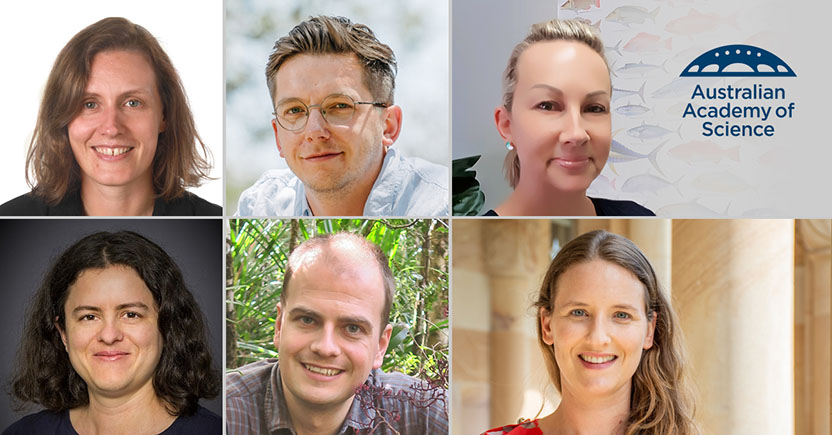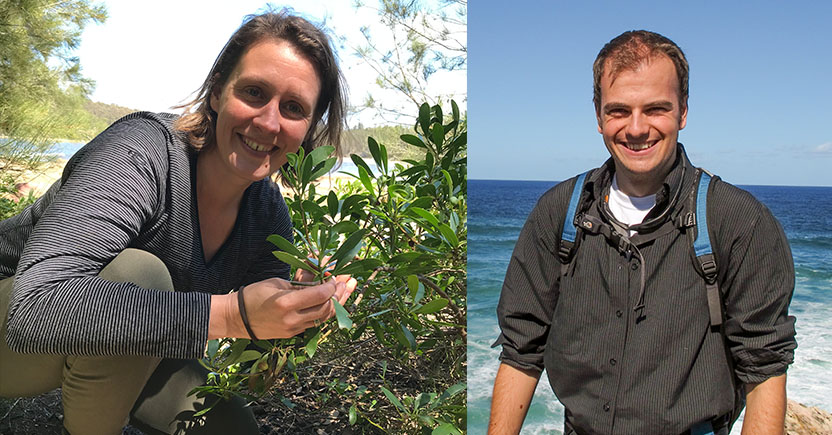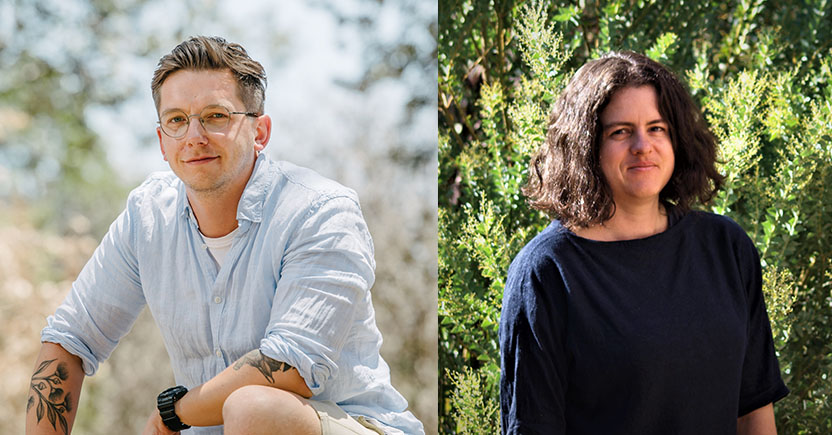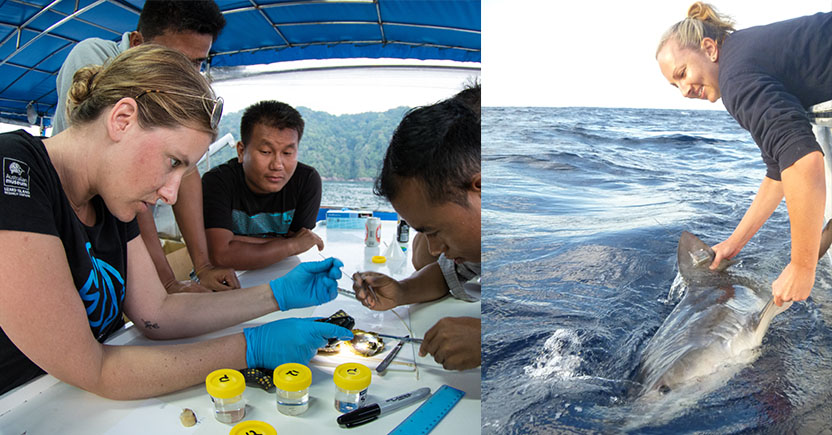
Uncovering rare metal-hoarding plants, mangrove desalination techniques and great hammerhead shark populations are the aims of some of the researchers awarded the Australian Academy of Science's 2021 Thomas Davies Research Grant for Marine, Soil and Plant Biology.
The grant is funded through a generous philanthropic bequest to the Academy from the estate of the late Thomas Lewis Davies. The fund offers annual research grants of up to $20,000 each to early- and mid-career researchers in the fields of marine, soil and plant biology.
Six researchers are recipients of research grants this year.

Dr Caitlin Byrt from the Australian National University will study the mechanisms that allow mangrove species (Avicennia officinalis) to separate salt and water, which could potentially help to manage freshwater resources. Recent advances in desalination technologies have drawn inspiration from biological systems, such as mangroves, to make the processes more energy-efficient and cost-effective.
Dr Byrt’s research will focus on the water and salt transport properties of mangrove aquaporins, a type of water channel protein embedded in leaf membranes. “This project will contribute to our understanding of how nature has solved the problem of separating salt and water,” said Dr Byrt.
Dr Antony van der Ent from the University of Queensland will continue the search for undiscovered hyperaccumulator plants, which have the unique ability to accumulate metal and metalloid elements. Hyperaccumulators have great potential in the fields of phytomining (harvesting metals from crops), phytoremediation of soils for agriculture and environmental management, and biofortification of crops to address human micronutrient deficiencies.
“Just 700 hyperaccumulator plant species have been identified globally, although it is expected that many more exist and await discovery,” said Dr van der Ent. He will use the innovative technique of x-ray fluorescence ionomics to extract elemental data from plant species held at the Queensland Herbarium.
Several hyperaccumulators have already been discovered in this collection in recent years, and the insights from this research will advance knowledge about their biology and physiology.

Dr Adam Frew from the University of Southern Queensland will investigate how different communities of arbuscular mycorrhizal (AM) fungi can affect defence traits in their host plants. AM fungi are sometimes used in bio-fertilisers—they promote plant growth and stress resistance, and can enhance their host plants’ immune systems. They also play a key role in maintaining soil health.
Dr Frew will investigate the role of AM fungal diversity in plant resistance to herbivores. He will study how diverse fungal communities drive defence mechanisms against root-feeding insects in three important crops: sugarcane, wheat and sorghum. This is an important step forward since most research to date has focused only on a few commonly used AM fungal species.
Dr Jana Sperschneider from the Australian National University will help uncover the mechanisms behind how rust fungi infect plants. Rust fungi are a significant threat to major agricultural crops like wheat, as well as iconic Australian plants, such as tea tree and lemon myrtle.
There is currently a lack of understanding surrounding how rusts infect plants—their unusual genomic structure is believed to be a major contributor to their virulence. Dr Sperschneider aims to shed light on how the rust genome is organised during the distinct stages of plant infection. This will help develop durable and effective strategies to protect crops and native ecosystems from rusts.

Dr Bonnie Holmes from the University of the Sunshine Coast will carry out one of the first studies to explicitly assess the distribution of great hammerhead sharks (Sphyrna mokarran) across multiple ecosystems in QLD and NSW. Her research will collect detailed ecological information on great hammerheads, including seasonal movements, fishery interaction and population genetic dynamics, particularly in the face of climate change.
Numbers of hammerhead sharks have undergone significant reductions off the Australian east coast and the species was classified as critically endangered in 2019. As keystone predators, they play a critical role in influencing the marine ecosystem, and Dr Holmes’s work will provide data that is essential for Australian management strategies.
Dr Amelia Wenger from the University of Queensland aims to develop evidence-based wastewater pollution guidelines that will preserve ecosystem health. Wastewater treatment services tend to focus on removing pathogens harmful to humans, but may not address pollutants that can harm coastal environments.
Dr Wenger’s project will draw on ecotoxicology statistics to develop wastewater pollution guidelines for tropical coastal and marine ecosystems. These guidelines will be used by conservation organisations, sanitation and health practitioners, and policymakers to implement ocean-friendly sanitation management.
© 2025 Australian Academy of Science